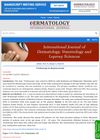TLDR Tofacitinib is safe and effective for severe alopecia areata, but hair loss may return 2 months after stopping treatment.
In a study conducted from July 2014 to March 2015, 66 patients with alopecia areata (AA), including alopecia totalis (AT) and alopecia universalis (AU), were treated with 5 mg of tofacitinib citrate twice daily for 3 months. The study found that 64% of patients responded to treatment, with 32% achieving a 50% or greater improvement in their Severity of Alopecia Tool (SALT) score. AA and ophiasis subtypes had a better response compared to AT and AU subtypes. A negative correlation was observed between the duration of AA and the percentage change in SALT score. Adverse events were mostly mild infections. The study concluded that tofacitinib is a safe and effective treatment for severe AA, but the effects were not long-lasting, with hair loss recurring approximately 2 months after treatment cessation. Additionally, molecular profiling was used to predict treatment response, with gene expression signatures differentiating between true nonresponders, slow responders, and true responders. Safety monitoring revealed one case of elevated liver enzymes and average increases in cholesterol levels.
 196 citations
,
September 2016 in “JCI insight”
196 citations
,
September 2016 in “JCI insight” Ruxolitinib effectively regrows hair in most patients with severe hair loss.
 295 citations
,
May 2016 in “Journal of the American Academy of Dermatology”
295 citations
,
May 2016 in “Journal of the American Academy of Dermatology” Alopecia areata, a common autoimmune hair loss condition, often runs in families.
 159 citations
,
October 2015 in “Science Advances”
159 citations
,
October 2015 in “Science Advances” Blocking JAK-STAT signaling can lead to hair growth.
 184 citations
,
February 2015 in “EBioMedicine”
184 citations
,
February 2015 in “EBioMedicine” A patient with Alopecia Areata had complete hair regrowth after using the drug baricitinib.
701 citations
,
August 2014 in “Nature medicine” Alopecia areata can be reversed by JAK inhibitors, promoting hair regrowth.
 185 citations
,
June 2014 in “Journal of Investigative Dermatology”
185 citations
,
June 2014 in “Journal of Investigative Dermatology” A man with severe hair loss and skin disease regrew his hair with no side effects after taking tofacitinib.
717 citations
,
June 2010 in “Nature” Alopecia areata involves both innate and adaptive immunity, with specific genes linked to the disease.
 164 citations
,
April 2008 in “Cochrane library”
164 citations
,
April 2008 in “Cochrane library” Current treatments for alopecia show no significant long-term benefits.
 1 citations
,
September 2022 in “International Journal of Trichology”
1 citations
,
September 2022 in “International Journal of Trichology” Tofacitinib can be effective in treating hair loss caused by alopecia areata.
 January 2021 in “International journal of dermatology, venereology and leprosy sciences”
January 2021 in “International journal of dermatology, venereology and leprosy sciences” Trichoscopy shows black dots, yellow dots, and empty follicles are common in Alopecia Areata, with broken and exclamation mark hair as typical patterns.
 4 citations
,
July 2018 in “PubMed”
4 citations
,
July 2018 in “PubMed” Oral and topical tofacitinib can help regrow hair in people with severe alopecia areata.
 3 citations
,
July 2017 in “International journal of medicine”
3 citations
,
July 2017 in “International journal of medicine” Intralesional triamcinolone acetonide effectively treats alopecia areata, as shown by significant improvements in hair regrowth and dermoscopic indicators.
 196 citations
,
September 2016 in “JCI insight”
196 citations
,
September 2016 in “JCI insight” Ruxolitinib effectively regrows hair in most patients with severe hair loss.
 14 citations
,
January 2011 in “International Journal of Trichology”
14 citations
,
January 2011 in “International Journal of Trichology” Some people with severe, long-lasting baldness responded well to a specific combination treatment.











